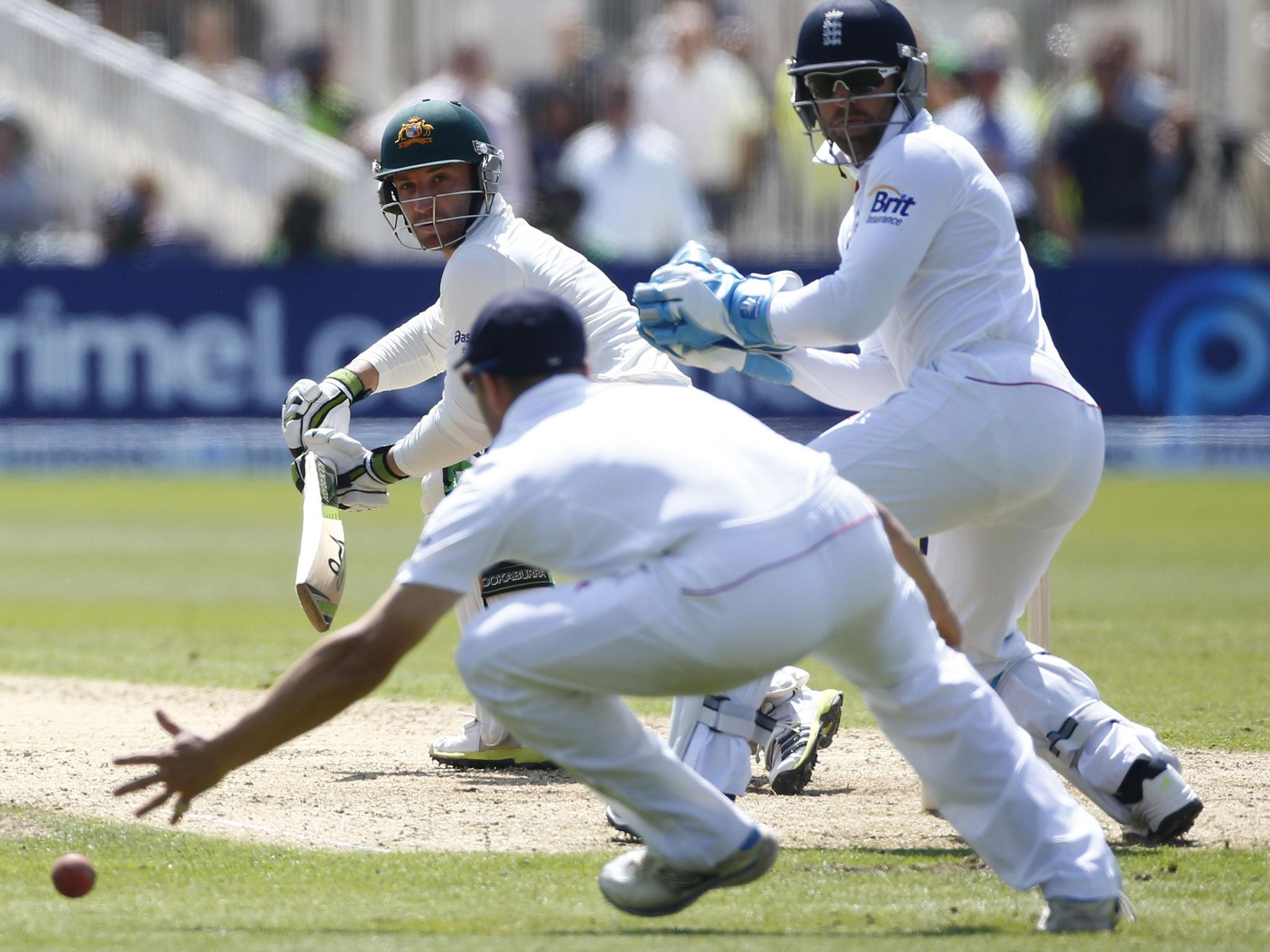John Townsend: At last Phil Hughes finds his place, quietly backstage allowing Ashton Agar the spotlight
Supporting actors win Oscars and he was happy to act his part

Your support helps us to tell the story
From reproductive rights to climate change to Big Tech, The Independent is on the ground when the story is developing. Whether it's investigating the financials of Elon Musk's pro-Trump PAC or producing our latest documentary, 'The A Word', which shines a light on the American women fighting for reproductive rights, we know how important it is to parse out the facts from the messaging.
At such a critical moment in US history, we need reporters on the ground. Your donation allows us to keep sending journalists to speak to both sides of the story.
The Independent is trusted by Americans across the entire political spectrum. And unlike many other quality news outlets, we choose not to lock Americans out of our reporting and analysis with paywalls. We believe quality journalism should be available to everyone, paid for by those who can afford it.
Your support makes all the difference.Phil Hughes is Australia's nearly man. He nearly made it as an opener. Twin centuries against the might of South Africa's pacemen in just his second Test confirmed his grand promise before it wilted in England on the last Ashes tour.
Then he nearly made it as a No 3. Replacing Ricky Ponting is no challenge for a shrinking violet and while Hughes was not expected to become the match-winner that his predecessor had been, he relished the responsibility even as he could not convert it into a reliable contribution.
More recently, Hughes flirted with No 4 before eight runs in three attempts quickly put paid to that ambition. Idiosyncratic in technique, yet steely in his self-belief, Hughes' slide down the batting order has nonetheless gathered momentum.
Tried and discarded in the top four places, he was listed to start this Ashes series at No 5. It didn't happen. He wasn't given a chance to lose that position before he was hastened to No 6 in place of Steve Smith who, on Michael Clarke's demise in the first innings, was promoted to maintain the left-right combination.
Nearly in action at No 5, Hughes was nearly off the radar screen while James Anderson and Graeme Swann created mayhem in the morning session.
Content to usher the strike to his mate Steve Smith, the inventive strokemaker whose hyperactive mannerisms and decision-making have gradually given way to calmer sensibilities, Hughes was able to build his innings away from the spotlight.
It was a rare opportunity for a batsman who has played out his career at the far ends of a spectrum extending from overhyped expectation to spectacular failure.
He doesn't lack sting, as Anderson discovered early when a delivery with little to differentiate it from its most probing fellows, apart from a modicum of width, went whistling through the covers to the fence.
Steven Finn also tested his reflexes against the shorter ball, an approach the bowler thought sufficiently successful to repeat later in the innings on the way to a four-over spell costing 32, including five boundaries.
Not that long ago, in India in March perhaps, Hughes would have been at the forefront of a catastrophic batting performance.
His failures against the Indian spinners were legend. He didn't move his feet unless he was charging blindly. His pads were impediments. His gloves manacles. His hands were of stone, which is helpful for a boxer but deadly for a batsman facing a relentless slow-motion examination in a foreign language.
Yet wickets tumbled at Trent Bridge and Hughes was nowhere to be seen amid the carnage.
He was nearly there. He was 22 yards away, as he was for much of Ashton Agar's remarkable maiden performance.
Anderson and Swann produced brilliant deliveries. Brad Haddin couldn't keep out one that jagged into him as though it had hit a stone while Smith and Peter Siddle were exposed by swing both subtle and precise. But they could not produce that one ball needed to unlock the key to the Hughes fortune.
He pottered along, occasionally cracking an errant offering to the square fences, but mostly just stayed in.
Agar came, as level-headed as any tyro in the game. Using the Steve Waugh approach of allowing the tailenders to find their own tempo, Hughes had no need to change his approach and didn't.
He was 21 when Agar arrived, was beaten to 50 by his pyrotechnic young colleague, and was the minor contributor as the stand passed its half-century, century and century-and-a-half landmarks.
If that challenged Hughes' ego, or altered his thinking, he kept it to himself.
Outstanding actors win Oscars in supporting roles and Hughes was happy to act his part as he witnessed the innings convert from an England bloodbath to an Australian massacre.
And as it turned out, it fell to Agar to be the nearly man as his looming century was denied by an outfield catch.
John Townsend is Cricket Writer at 'The West Australian'
Join our commenting forum
Join thought-provoking conversations, follow other Independent readers and see their replies
Comments